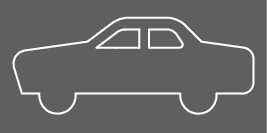Fuel consumption and CO2 emissions
Fuel consumption in a vehicle is measured in litres per 100 km and CO2 emissions in grams CO2 per km.
 | gram CO₂/km |
 | litre/100 km |
 | Urban driving |
 | Extra-urban driving |
 | Combined driving |
 | Manual gearbox |
 | Automatic gearbox |
Note
Note
S60
|  |  |  | ||||
|---|---|---|---|---|---|---|---|
 |  |  |  |  |  | ||
| T2 (B4154T5) |  | 171 | 7.4 | 113 | 4.8 | 134 | 5.8 |
| T3 (B4204T37) |  | 172 | 7.4 | 107 | 4.6 | 131 | 5.6 |
| T3 (B4154T4) |  | 171 | 7.4 | 113 | 4.8 | 134 | 5.8 |
| T4 (B4204T19) |  | 172 | 7.4 | 107 | 4.6 | 131 | 5.6 |
| T4 (B4204T19) |  | 171 | 7.4 | 113 | 4.8 | 134 | 5.8 |
| T5 (B4204T11) |  | 198 | 8.6 | 114 | 4.9 | 145 | 6.2 |
| T6 (B4204T9) |  | 199 | 8.6 | 120 | 5.1 | 149 | 6.4 |
| T6 AWD (B4204T9) |  | 214 | 9.2 | 130 | 5.6 | 161 | 6.9 |
| Polestar (B4204T43) |  | - | - | - | - | - | - |
| D21 (D4204T8) |  | 112 | 4.3 | 92 | 3.5 | 99 | 3.8 |
| D22 (D4204T8) |  | 110 | 4.2 | 88 | 3,4 | 96 | 3.7 |
| D21 (D4204T20) |  | 124 | 4.8 | 102 | 3.9 | 110 | 4.2 |
| D22 (D4204T20) |  | 120 | 4.6 | 99 | 3.8 | 107 | 4.1 |
| D31 (D4204T9) |  | 114 | 4.4 | 95 | 3.6 | 102 | 3.9 |
| D32 (D4204T9) |  | 112 | 4.3 | 92 | 3.5 | 99 | 3.8 |
| D31 (D4204T9) |  | 124 | 4.8 | 102 | 3.9 | 110 | 4.2 |
| D32 (D4204T9) |  | 120 | 4.6 | 99 | 3.8 | 107 | 4.1 |
| D41 (D4204T14) |  | 115 | 4.5 | 95 | 3.6 | 102 | 3.9 |
| D42 (D4204T14) |  | 114 | 4.4 | 91 | 3.5 | 99 | 3.8 |
| D41 (D4204T14) |  | 139 | 5.3 | 98 | 3.7 | 113 | 4.3 |
| D42 (D4204T14) |  | 134 | 5.0 | 95 | 3.6 | 109 | 4.1 |
| D4 AWD (D5244T21) |  | 176 | 6.7 | 124 | 4.7 | 143 | 5.4 |
| D5 (D4204T11) |  | 142 | 5.4 | 106 | 4.0 | 119 | 4.5 |
Fuel consumption and emission values in the table above are based on specific EU cycles3, that apply to cars with kerb weight in the basic version and without extra equipment. The car's weight may increase depending on equipment. This, as well as how heavily the car is loaded, increases fuel consumption and carbon dioxide emissions.
There are several reasons for increased fuel consumption compared with the table's values. Examples of this are:
- The driver's driving style.
- If the customer has specified wheels larger than those fitted as standard on the model's basic version, then rolling resistance increases.
- High speed results in increased wind resistance.
- Fuel quality, road and traffic conditions, weather and the condition of the car.
A combination of the above-mentioned examples can result in significantly increased consumption. For further information, please refer to the regulations referred to3.
Large deviations in fuel consumption may arise in a comparison with the EU driving cycles3 which are used in the certification of the car and on which the consumption figures in the table are based.
